-
 bitcoin
bitcoin $87959.907984 USD
1.34% -
 ethereum
ethereum $2920.497338 USD
3.04% -
 tether
tether $0.999775 USD
0.00% -
 xrp
xrp $2.237324 USD
8.12% -
 bnb
bnb $860.243768 USD
0.90% -
 solana
solana $138.089498 USD
5.43% -
 usd-coin
usd-coin $0.999807 USD
0.01% -
 tron
tron $0.272801 USD
-1.53% -
 dogecoin
dogecoin $0.150904 USD
2.96% -
 cardano
cardano $0.421635 USD
1.97% -
 hyperliquid
hyperliquid $32.152445 USD
2.23% -
 bitcoin-cash
bitcoin-cash $533.301069 USD
-1.94% -
 chainlink
chainlink $12.953417 USD
2.68% -
 unus-sed-leo
unus-sed-leo $9.535951 USD
0.73% -
 zcash
zcash $521.483386 USD
-2.87%
How to learn Bitcoin mining
To maximize Bitcoin mining efficiency, consider factors such as hardware overclocking, optimal cooling strategies, mining pool selection, and diligent system monitoring and maintenance.
Jan 10, 2025 at 11:32 am
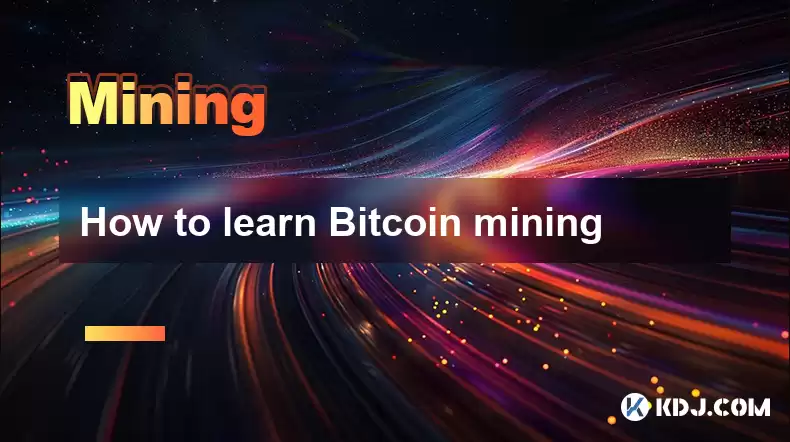
- Understand the concept of Bitcoin mining
- Choose the right mining hardware
- Set up your mining software
- Configure your mining pool
- Optimize your mining efficiency
- Monitor and maintain your mining operation
- Understand the risks and rewards of Bitcoin mining
Bitcoin mining is the process of verifying and adding new transactions to the Bitcoin blockchain. Miners use specialized computers to solve complex mathematical problems, which generate new blocks in the blockchain. Each block contains a record of recent transactions, and the miner who solves the block is rewarded with a certain amount of Bitcoin.
2. Choose the Right Mining HardwareThe most important factor in Bitcoin mining is the hardware you use. There are two main types of mining hardware:
- ASICs (Application-Specific Integrated Circuits): ASICs are specialized chips designed specifically for Bitcoin mining. They are more efficient than GPUs but also more expensive.
- GPUs (Graphics Processing Units): GPUs are the graphics cards found in gaming computers. They are less efficient than ASICs but more affordable and versatile.
Once you have chosen your hardware, you need to install mining software. This software will connect your hardware to the Bitcoin network and allow you to start mining. There are several different mining software programs available, such as:
- CGMiner
- BFGMiner
- EasyMiner
Mining pools are groups of miners who combine their resources to increase their chances of finding a block. They share the rewards from any blocks they find, and they typically pay out their miners based on the amount of work they contributed. Joining a mining pool is a good way for beginners to get started with Bitcoin mining without having to invest in expensive hardware.
5. Optimize Your Mining EfficiencyThere are a number of factors that can affect your mining efficiency, including:
- Overclocking your hardware: Overclocking your hardware can increase its performance, but it can also reduce its lifespan.
- Cooling your hardware: Keeping your hardware cool can help prevent it from overheating and damaging itself.
- Selecting the right mining pool: Different mining pools have different fees and payout structures. Choose a pool that is appropriate for your level of experience and hardware capabilities.
Once you have your mining operation up and running, it is important to monitor it regularly. You should check your hardware's temperature, fan speed, and other metrics to make sure that it is running properly. You should also keep an eye on your mining pool's performance and make adjustments as needed.
7. Understand the Risks and Rewards of Bitcoin MiningBitcoin mining is a risky investment. The value of Bitcoin can fluctuate, and there is no guarantee that you will make a profit. However, mining can also be a rewarding experience. It can be a good way to learn about the cryptocurrency industry and to earn some extra Bitcoin.
FAQs- Is Bitcoin mining profitable? The profitability of Bitcoin mining depends on a number of factors, including the price of Bitcoin, the cost of your hardware, and the efficiency of your mining operation.
- How long does it take to mine one Bitcoin? The time it takes to mine one Bitcoin varies depending on the difficulty of the network and the efficiency of your mining hardware. On average, it takes about 10 minutes to mine one Bitcoin.
- Is Bitcoin mining legal? Bitcoin mining is legal in most countries, but there are some exceptions. Be sure to check the laws in your country before starting a mining operation.
- What are the environmental impacts of Bitcoin mining? Bitcoin mining can be energy-intensive, and it has been criticized for its environmental impact. However, the energy consumption of Bitcoin mining is relatively small compared to other industries, and it is expected to decline as the network becomes more efficient.
Disclaimer:info@kdj.com
The information provided is not trading advice. kdj.com does not assume any responsibility for any investments made based on the information provided in this article. Cryptocurrencies are highly volatile and it is highly recommended that you invest with caution after thorough research!
If you believe that the content used on this website infringes your copyright, please contact us immediately (info@kdj.com) and we will delete it promptly.
- Bitcoin's Rocky Road: Inflation Surges, Rate Cut Hopes Fade, and the Digital Gold Debate Heats Up
- 2026-02-01 09:40:02
- Bitcoin Shows Cheaper Data Signals, Analysts Eyeing Gold Rotation
- 2026-02-01 07:40:02
- Bitcoin's Latest Tumble: Is This the Ultimate 'Buy the Dip' Signal for Crypto?
- 2026-02-01 07:35:01
- Big Apple Crypto Blues: Bitcoin and Ethereum Stumble as $500 Billion Vanishes Amid Macroeconomic Whirlwind
- 2026-02-01 07:35:01
- Michael Wrubel Crowns IPO Genie as the Next Big Presale: A New Era for Early-Stage Investments Hits the Blockchain
- 2026-02-01 07:30:02
- XRP, Ripple, Support Level: Navigating the Urban Jungle of Crypto Volatility
- 2026-02-01 06:35:01
Related knowledge
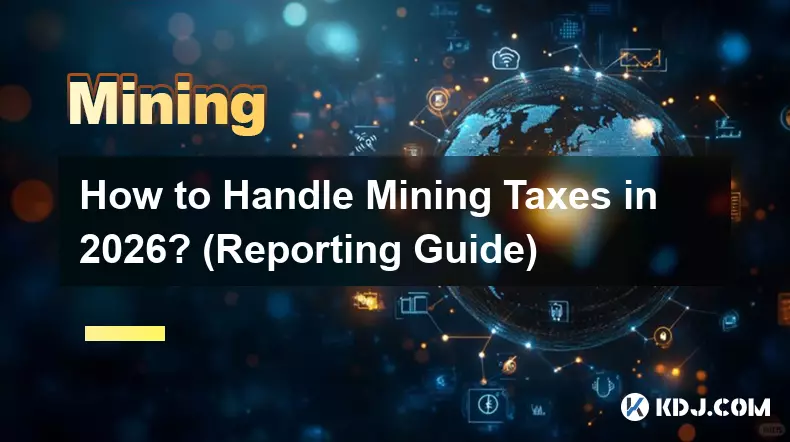
How to Handle Mining Taxes in 2026? (Reporting Guide)
Feb 01,2026 at 01:39am
Tax Classification of Mining Rewards1. Cryptocurrency mining rewards are treated as ordinary income at the fair market value on the date of receipt. 2...
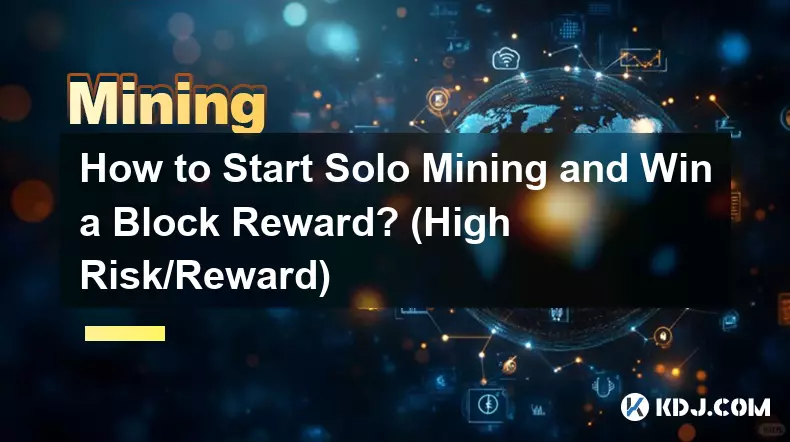
How to Start Solo Mining and Win a Block Reward? (High Risk/Reward)
Feb 01,2026 at 06:40am
Understanding Solo Mining Mechanics1. Solo mining means operating a full node and attempting to solve cryptographic puzzles independently without join...
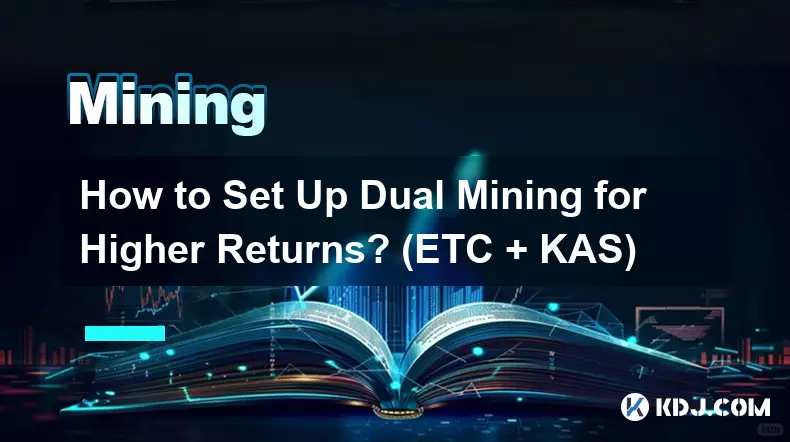
How to Set Up Dual Mining for Higher Returns? (ETC + KAS)
Feb 01,2026 at 02:19am
Dual Mining Fundamentals1. Dual mining allows a single GPU to simultaneously contribute computational power to two different blockchains using compati...
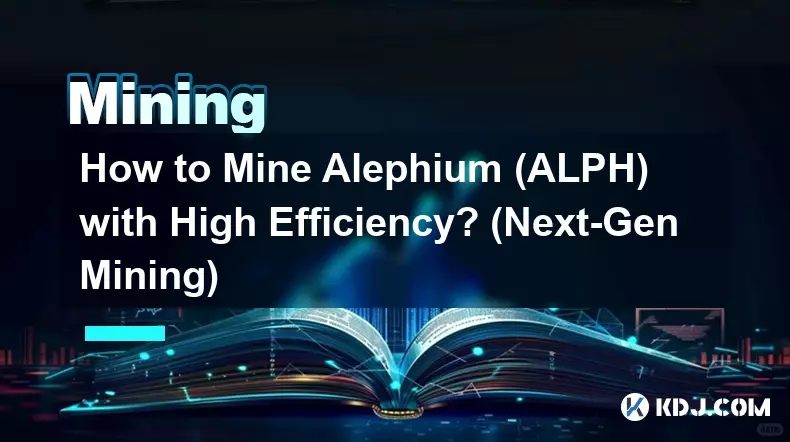
How to Mine Alephium (ALPH) with High Efficiency? (Next-Gen Mining)
Feb 01,2026 at 05:39am
Understanding Alephium's Unique Consensus Mechanism1. Alephium employs a sharded Proof-of-Work (PoW) consensus called BlockDAG with Recursive Sharding...
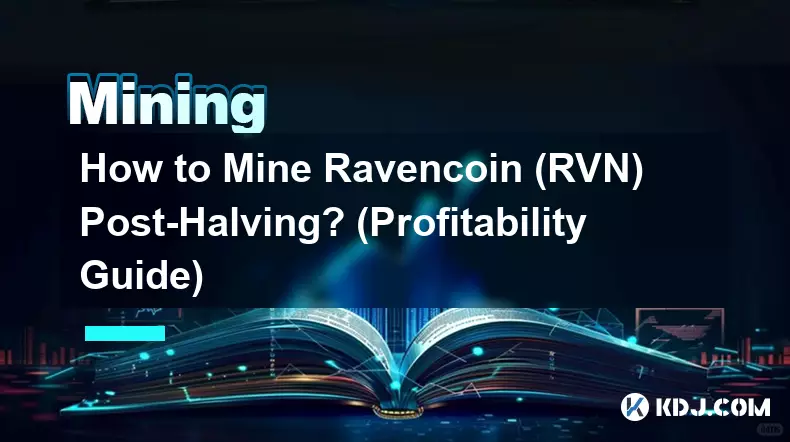
How to Mine Ravencoin (RVN) Post-Halving? (Profitability Guide)
Feb 01,2026 at 07:59am
Understanding Ravencoin Mining Mechanics1. Ravencoin operates on a proof-of-work consensus model using the KAWPOW algorithm, specifically designed to ...
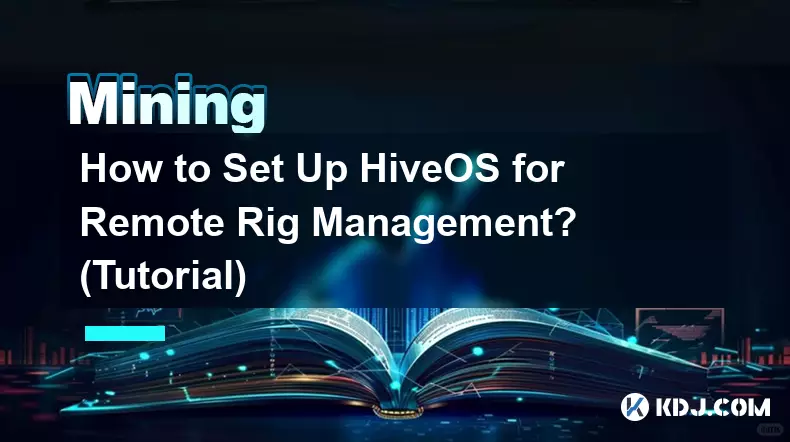
How to Set Up HiveOS for Remote Rig Management? (Tutorial)
Feb 01,2026 at 12:39am
Understanding HiveOS Fundamentals1. HiveOS is a Linux-based operating system specifically engineered for GPU mining rigs, offering lightweight perform...

How to Handle Mining Taxes in 2026? (Reporting Guide)
Feb 01,2026 at 01:39am
Tax Classification of Mining Rewards1. Cryptocurrency mining rewards are treated as ordinary income at the fair market value on the date of receipt. 2...

How to Start Solo Mining and Win a Block Reward? (High Risk/Reward)
Feb 01,2026 at 06:40am
Understanding Solo Mining Mechanics1. Solo mining means operating a full node and attempting to solve cryptographic puzzles independently without join...

How to Set Up Dual Mining for Higher Returns? (ETC + KAS)
Feb 01,2026 at 02:19am
Dual Mining Fundamentals1. Dual mining allows a single GPU to simultaneously contribute computational power to two different blockchains using compati...

How to Mine Alephium (ALPH) with High Efficiency? (Next-Gen Mining)
Feb 01,2026 at 05:39am
Understanding Alephium's Unique Consensus Mechanism1. Alephium employs a sharded Proof-of-Work (PoW) consensus called BlockDAG with Recursive Sharding...

How to Mine Ravencoin (RVN) Post-Halving? (Profitability Guide)
Feb 01,2026 at 07:59am
Understanding Ravencoin Mining Mechanics1. Ravencoin operates on a proof-of-work consensus model using the KAWPOW algorithm, specifically designed to ...

How to Set Up HiveOS for Remote Rig Management? (Tutorial)
Feb 01,2026 at 12:39am
Understanding HiveOS Fundamentals1. HiveOS is a Linux-based operating system specifically engineered for GPU mining rigs, offering lightweight perform...
See all articles





















![THIS IS THE HARDEST COIN TO GET [POLY DASH] THIS IS THE HARDEST COIN TO GET [POLY DASH]](/uploads/2026/01/31/cryptocurrencies-news/videos/origin_697e0319ee56d_image_500_375.webp)




















































